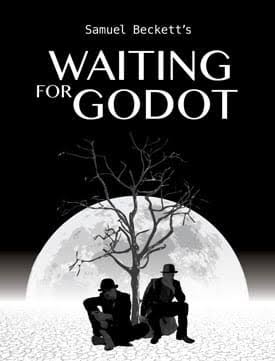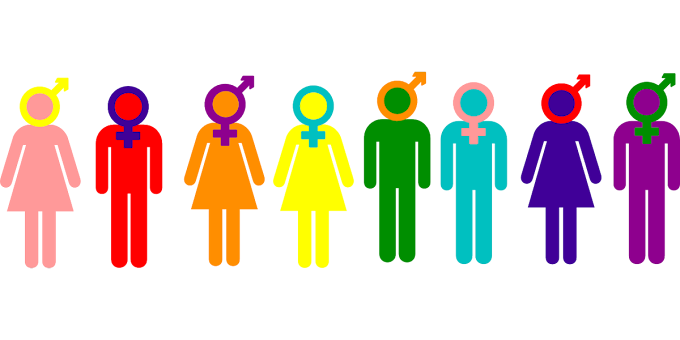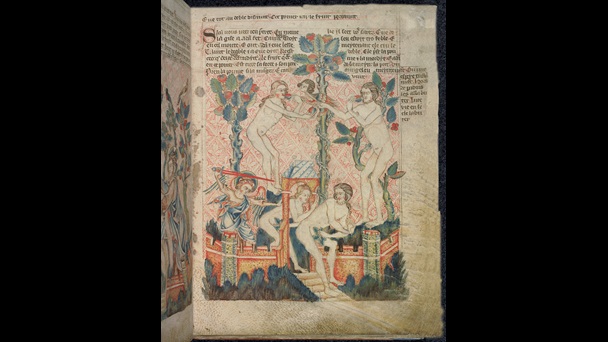Hello readers….
From ancient times, we all are curious to know about our existence. Still we are not sure what the truth is. But, nowadays we are constructed in a system of society and culture, and can't see anything beyond this( culture). There are binaries in our society, one is always superior and the other is always inferior. But do we know that the language is shaping and conditioning our minds in such a way and controlling us by its words? No, because language is a part of our culture and we used to love our culture and hate to other cultures. So we are unable to find negative elements in language. Derrida - a French Philosopher deconstructs all these ideas about language...
What is Deconstruction?
From childhood , our mind is shaped by various things. We are habitual with definitions and meanings of words. But had we ever questioned the language? The answer is no. Because for us language is natural and a tool to express ourselves.
"If thought corrupts language, language can also corrupt thought"
The above quotation is quite contradictory. Without language there is no thought. Language is itself a corruption. So, the answer to the above question is one can't define Deconstruction. As Derrida questioned…
Is it possible to define something?
If the answer is yes... then we are in the world of assumptions. The 'meaning' itself has no meaning. That's why Derrida refuses to define Deconstruction. Because If you define Deconstruction it means you have made a border around it.
Differ + Defer = DifferAnce
Differ means to differentiate and defer means to postpone. Derrida combines both words and coins a new word DifferAnce. When we find a meaning of a word in the dictionary, we don't find a meaning but we find another word. And a meaning is postponed. We just assume that we have understood..
"One word leads to another word and that word leads to yet another...and finally we never come out of the dictionary "
What Derrida tries to say is there is no meanings of words. We just assume and stop asking the questions.
Deconstruction is a post structuralist approach to analyze a literary work of art. One can remark that….
Deconstruction dismisses the assumption of literary analysis we already claim…
Finding binary opposites in the text is core component of Deconstruction...
Derrida deconstructs the idea of binary opposition. In language there are only negative elements. By this Derrida wanted to made equality, no binary opposites. In binary opposites one considers as superior and another considers as inferior. One is privileged over others.
Applying Deconstruction :
Here I'm going to read an advertisement. Which is about the detergent powder but in the background of the advertisement we can find binary opposition..
When people see this advertisement they think this is a very thought provoking advertisement. How nicely a woman convinced her husband to help him economically. And we all like this type of advertises. What the idea about is that a woman should help his husband economically and share the responsibilities if a man couldn't do this single handedly. Then and then the woman askes her husband to do some ode work. But what will happen if a man is enough capable to pay his duty towards his family, then a woman will never ask him to help him or to do work. So, we can find gender binaries here. Here one dialogue from Male actor is...
"इतनी महँगाई में आदमी अकेले घर कैसे चलाएगा.."
This dialogue shows that the economic responsibilities are only for man. In any condition he has to do this. And his wife is not suddenly asked him to help him, but she has to show some work to convince him to gives her permission, so she can start working.
Thus, as Derrida says Deconstruction happens on its own.
The above advertise is very interesting. We can find hierarchy and binary opposition. As Derrida says there is no positive elements in language, we can find binary in language like..
बडे और छोटे
Bigger one is always privileged over smaller one. When the Glass(छोटे) asked him the question…
यार एक बात बता तू इतना clear कैसे..?
Then the bottle(बड़े) just gave him a look and the glass stopped asking the question and say Sorry. In culture we can find this type of hierarchy. If an older person or a powerful person say something, you are not allowed to ask them questions. One is always privileged and the other is unprivileged. We can also find gender binaries , when we see this advertisement we find a man and a girl both are working. But the bottle only speaks about a work of man. So, what does the woman is doing in this advertisement ? She is also working hardly. But what the center idea is man is doing a hard job as the bottle speaks...
"असली स्टड तो ये लकडी वाला हैं छोटे, इसका रुप धुप नही खिलता है.."
Now again there is binary. रुप a word always used for woman. And here the bottle speaks इसका रुप धुप नही खिलता है… it means man always do hard work and he has no relevance with all this beauty. Beauty is just for women and they can not do any tough job. That's why Man is privileged over woman. Moving ahead, the final picture of the advertisement shows gender binaries..
Here we can see that the man is in the center of this advertisement. The below table speaks the binary.
Privileged
|
Disadvantaged
|
बड़े
|
छोटे
|
Man
|
Woman
|
At the center
|
Decenterd
|
Advertisements always give first priority to men. Here the character of a woman is seems like just a side character. We can also find binaries in the angle of camera. It focuses and highlights the man rather than the woman. The advertisement is about Sprite, a soda bottle. The man drinks from this bottle and woman drinks from the glass. So the man grab the attention of the audience. In our society we can also find that the softer work is always for woman and hard work is always for man.










9 Comments
Written well
ReplyDeleteGreat
ReplyDeleteWell written with interesting beginning
ReplyDeleteWell drafted 👍
ReplyDeleteGood Work.
ReplyDeleteNice
ReplyDeleteGood
ReplyDeleteWell written
ReplyDeleteGood beginning and well described
ReplyDelete